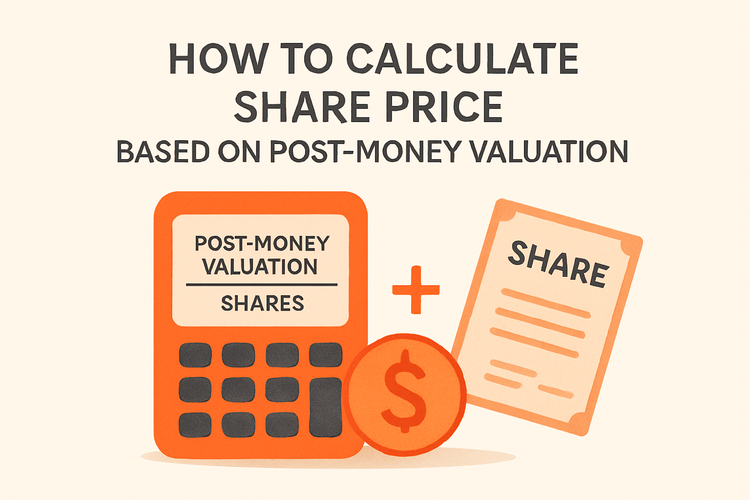How To Calculate Share Price Based On Post Money Valuation

Understanding Post Money Valuation
Post money valuation is the value of a company after external funding and investment have been added to its balance sheet. It's an essential figure that helps determine ownership percentages and share price.
Calculating post money valuation is straightforward: it comprises the pre-money valuation plus any new capital injected during a funding round. For example, if a startup is valued at £5 million pre-funding and raises £1 million, the post money valuation is £6 million. Understanding this figure enables both founders and investors to negotiate terms, including share price and equity distribution.
This concept is crucial in early-stage funding rounds, especially when valuation dictates not just equity splits, but also investor influence. For construction product related investments—such as businesses handling joist hangers or post base systems—knowing this value ensures the deal benefits both business scaling and stakeholder equity expectations.
Calculating Share Price from Post Money Valuation
To determine the share price, you'll need the total post money valuation and the number of outstanding shares after investment. It's a basic division of total value by share count.
For example, if a company’s post money valuation is £4 million and there are 1 million shares post-funding, each share is worth £4. This valuation-driven share price is vital for calculating how many shares new investors receive and the dilution occurring to prior shareholders.
This clarity proves crucial for evaluating the value of equity in highly competitive markets, such as the one encompassing timber connectors or structural brackets. Consider a niche company that manufactures restraint straps: even if the business is still emerging, understanding share price via post money valuation aids in attracting the right backing through transparent value metrics.
Factors Impacting Post Money Valuation and Share Price
Numerous internal and external variables can influence the post money valuation and indirectly the share price. Market demand, business model sustainability, and investor sentiment all contribute.
Sector trends play a substantial role here. In construction supply chains, businesses offering durable connectors—like angle brackets or roof connectors—find valuation strategies particularly affected by raw material costs, environmental regulations, and tech integration. All of these can cause fluctuations in share price since they influence investor perception of growth potential.
Additionally, as businesses introduce new products or technologies, they may attract additional funding rounds, altering shareholder composition and post-investment values. Valuation recalibrations must consider these broader elements to maintain fairness and capital efficiency.
Equity Dilution and Ownership Implications
One of the central consequences of funding rounds and post money valuation is equity dilution, where ownership percentages change due to the introduction of new shares. It affects both control and future return prospects.
For instance, an initial founder owning 100% of their company will naturally own less after giving up equity in return for funding. If they issue 25% new equity to investors, their share drops to 75%, and vice versa. This aspect needs careful thought, particularly in businesses where tight operational control is essential—like production units handling timber frame connectors or high safety-grade fixings.
Calculated dilution allows businesses to balance immediate growth capital with long-term shareholder value. It's a trade-off between scaling opportunities and control. Transparent communication during this process improves investor relationships and fosters sustainable growth outlooks.
Strategic Application in Construction-Focused Ventures
Post money valuation and share price calculations can be strategically leveraged in construction-centric startups by positioning value-additions clearly to potential investors.
Companies producing niche construction components—like connectors for Glulam timber or high-wind ties—can benefit by showcasing product line maturity, production scalability, and long-term industry relevance. Doing so improves valuation outlooks and makes equity investment more attractive.
Such businesses should also embrace data-backed trajectories—detailing supply chain reliability, materials innovation, and eco-compliance—as part of their pitch documents. These elements can enhance not just market valuation, but also help justify share prices that accurately reflect current and projected value. In fast-evolving segments such as construction connectors, the ability to tie solid financial principles to tangible production metrics is key to attracting sustained investment.
